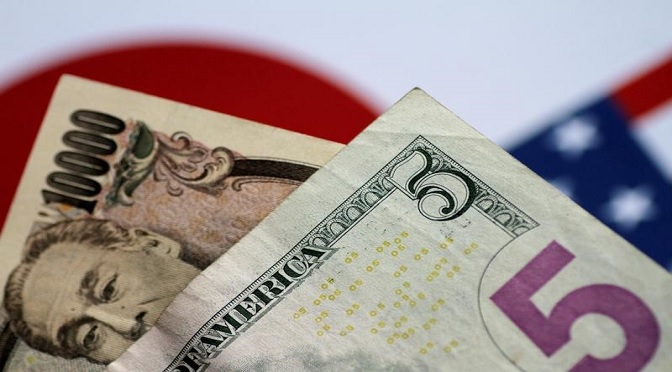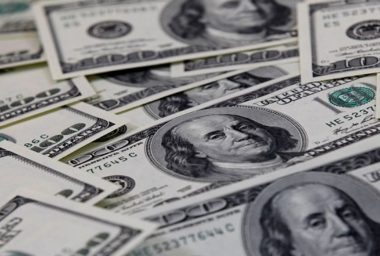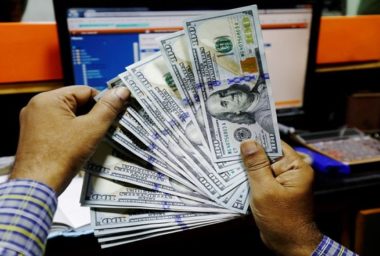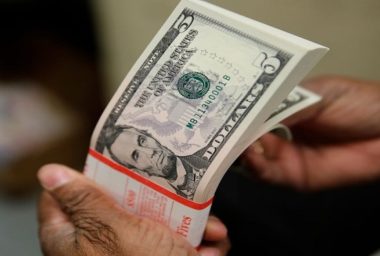-
Authoradmin
-
Comments0 Comments
-
Category
The dollar was broadly lower on Monday following comments by U.S. President Donald Trump on interest rates and the currency’s strength, while the yen gained after reports that Japan’s central bank is debating moves to scale back its massive stimulus program.
The U.S. dollar index, which measures the greenback’s strength against a basket of six major currencies, slid 0.18% to 94.09 by 03:48 AM ET (07:48 AM GMT), pulling further away from the one-year high of 95.44 reached on Thursday.
The dollar has come under pressure after Trump launched an attack on the Federal Reserve on Thursday, claiming that their plans to raise U.S. interest rates risked undermining his efforts at strengthening the economy.
Trump ratcheted up his criticism of the Fed on Friday, taking to Twitter to claim that tighter monetary policy was penalizing the U.S. by contributing to a stronger dollar.
He also accused China and the European Union of currency and interest-rate manipulation that he claims has put the U.S. at a disadvantage.
The dollar index fell 0.77% on Friday, its largest one-day percentage decline in three weeks, which was enough to turn the index negative for the month.
The dollar fell to its lowest level in two weeks against the yen, with USD/JPY down 0.47% to 110.95. The dollar has now fallen around 2% against the Japanese currency since hitting a six month peak of 113.16 last Thursday.
The yen was boosted after Reuters and other media outlets reported that the Bank of Japan is actively discussing changes to its massive monetary stimulus program. The BoJ is due to hold its next policy meeting at the end of the month.
The euro pushed higher against the dollar, with EUR/USD adding on 0.14% to trade at 1.1735.
The pound was also a touch higher, with GBP/USD rising 0.17% to 1.3151.
Investors were continuing to monitor developments in the intensifying global trade conflict after Trump indicated Friday that he is prepared to slap tariffs on all Chinese imports to the U.S., worth around $500 billion per year.
The U.S. and China have already imposed tariffs on $34 billion worth of each other’s imports.
Meanwhile, finance ministers and central bank heads from the G20 nations called for more dialogue to prevent trade and geopolitical tensions from hurting growth at a weekend meeting in Buenos Aires.
Recent Comments
- Starlight Herot on Euro Higher on German Data, Sterling Edges Lower
- Frost Dragont on Euro Higher on German Data, Sterling Edges Lower
- Gwinnettt on Euro Higher on German Data, Sterling Edges Lower
- Vanessat on Euro Higher on German Data, Sterling Edges Lower
- Christinet on Euro Higher on German Data, Sterling Edges Lower
Archives
- April 2025
- March 2025
- February 2025
- January 2025
- December 2024
- November 2024
- October 2024
- February 2024
- July 2023
- July 2021
- May 2021
- March 2021
- February 2021
- September 2020
- May 2020
- February 2020
- December 2019
- November 2019
- October 2019
- September 2019
- August 2019
- July 2019
- June 2019
- May 2019
- April 2019
- March 2019
- February 2019
- January 2019
- December 2018
- November 2018
- October 2018
- September 2018
- August 2018
- July 2018
- June 2018
- May 2018
- April 2018
- March 2018
- February 2018
- January 2018
- December 2017
- November 2017






